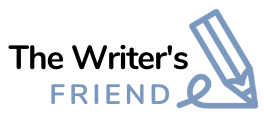Biograpgh
| “I cannot remember a time I didn’t want to write,” Donna says. “I wrote my first poem out of necessity when I was nine years old. It was Mother’s Day and I didn’t have money to buy my mother a gift so I wrote her a poem. The second one I wrote at the age of 10 for Memorial Day. Our minister distributed copies to church members as they walked into the service. I wrote my third poem at the age of 11 when my dad walked out of his 22-year marriage to my mother. I found even at that young age I could express my feelings on paper.”Donna has five people to thank for helping her get started. The first was Frances Burnside, a children’s librarian in Jackson, Michigan, who introduced her to The Writer magazine when she was nine years old and gave her a chance to read her writings at the annual talent show in the library auditorium.In the fifth and sixth grade, Donna was placed in a class at the old Pearl School in Jackson called the “Opportunity Room,” similar to the accelerated classrooms of today. In that room they were taught how to use the library for research, how to outline and give speeches, and how to write book reports. They were also encouraged to write poetry, short stories, and articles. Sometimes the teacher, Helen Nichols, would read her writing and say, “You can do better than that.” She saw something in Donna that others could not.At the age of 20, Donna received a job offer at her denominational publishing house in Kansas City, but she didn’t have the bus fare for the interview. That Sunday a friend, Mabel Mathias, approached her at church. “My husband and I have talked it over,” she said. “We’d like to see you get that job,” and she handed her enough for the ticket. Donna made the trip and was hired.Donna says, “If ever a person had patience, it was my new boss at the publishing house—the book editor. I had a love for writing, but only one year of ninth-grade typing. However, my on-the-job training for the next two years taught me much about the field of publishing: why books are rejected and accepted; what happens to a manuscript after it is accepted; how to check quotations for accuracy; writing for permissions and copyrights; corresponding with authors. Thank you, Norman Oke, for putting up with my poor clerical skills, and accepting instead my determination to learn and my excitement of being part of the publishing scene.” It was a thrill for Donna to have Dr. Oke as the guest speaker at one of her annual Arizona conferences 25 years later!And last, but not least, Donna’s mother, Freda Clark Colburn, who instilled in Donna a love for reading and for writing. After Donna moved away from home, her mother often sent her little stories or Scripture verses in her letters, saying, “This would make a good article.” After she died, the family found a large box in her closet with the words written on it, “SAVE FOR DONNA.” The box contained hundreds of articles, poems, and quotations she had clipped from newspapers, magazines, and church bulletins over the years.In 1980 Donna attended her first Christian writers’ conference. She had sold 4 books and around 200 articles, but at that point in her life writing was only a hobby, something she did whenever she found the time. However, a quote by Harold Ivan Smith at that conference literally changed her writing life. He said, “We are called to write, and I feel we will be held responsible at the Judgment for the people who are hurting that we could have helped but didn’t because we didn’t write what God laid on our hearts to write.” This statement took writing out of the “hobby” category for Donna and made it a calling. From that point on, she holds the firm belief that she is as called to write as a minister is called to preach.She tells her students at conferences, “The rewards of writing are not in the bylines nor the checks. Rather, it is when someone calls or writes you and says, ‘What you wrote changed my life and now I can go on.’ ” – The Writer’s Friend |
